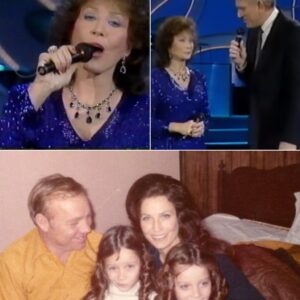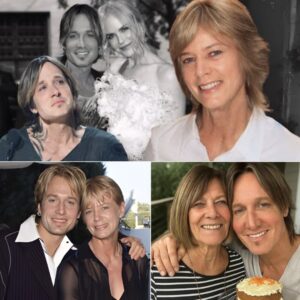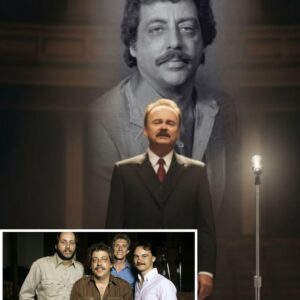In a night celebrating giants of American culture, the 46th Kennedy Center Honors delivered a moment that will linger long after the show ended. Michael Bublé, the Canadian singer known for his smooth voice and timeless style, took the stage to pay tribute to Barry Gibb, the last surviving member of the legendary Bee Gees, by performing “How Can You Mend A Broken Heart.” It was more than just a performance; it was an emotional exchange between two artists, witnessed by a riveting audience and millions watching at home.
A Night of Stars and Feelings
The Kennedy Center Honors, held annually in Washington, D.C., is an event that celebrates artistic achievement and cultural impact. This year’s honorees included Barry Gibb, Billy Crystal, Queen Latifah, Renée Fleming, and Dionne Warwick—a lineup that was considered a household name. But as the show drew to a close, one performance clearly stood out for its emotional resonance.

As the lights dimmed and the orchestra prepared behind them, Michael Bublé emerged in a classic tuxedo, bathed in a soft amber glow. The anticipation in the room was palpable, as if signaling something special was about to happen. With the first gentle notes, Bublé began to weave a tapestry of sound and emotion, conveying the deep sadness of the Bee Gees’ classic ballad.
Breathing New Life into a Classic
“How Can You Mend A Broken Heart” is a song steeped in nostalgia, a timeless meditation on love and loss. Bublé’s interpretation was both reverent and profound, each lyric carrying a dull pain that seemed to touch the heart of every listener. The audience, including honorees, dignitaries, and celebrities, sat silent and stunned, their attention drawn not only to the music but also to the sincerity of the moment.
Michael Bublé performed an emotional cover of the Bee Gees song as a poignant tribute to Barry Gibb
When Bublé sang, “How can you stop the rain from falling? How can you stop the sun from shining?”, the camera found Barry Gibb in the crowd. Gibb had tears in his eyes, his lip quivering as he listened to words he had written decades ago, now brought to life by another artist. The weight of the moment hung heavy in the room—a stillness of shared memories, a shared recognition of the healing and connecting power of music.
More Than a Performance: A Spiritual Salute
For Bublé, the tribute was more than just a professional obligation; it was also a deeply personal one. He has long cited the Bee Gees as a defining inspiration for his career, and his admiration for Gibb was evident in every note. The sincerity of his lyrics created an intimate bridge between past and present, honoring not just a musical legacy but the man behind it.
“It wasn’t just a performance—it was a conversation,” one attendee remarked. “You could feel the respect, the gratitude, and the genuine emotion coming off the stage.”
The response was immediate and powerful. Before the final note had faded, the entire audience rose to their feet in thunderous applause. Even the President and First Lady, seated among the honorees, were visibly moved, immersed in the moment.

The Emotional Heart of Honor
For Barry Gibb, the evening was already one of reverence and gratitude. But Bublé’s tribute transformed it into something deeply spiritual—a reminder of music’s ability to endure, connect, and heal. It wasn’t just a tribute to Gibb’s contributions; it was a tribute from soul to soul, one that transcended generations.
Gibb, a man whose music touched millions, was overcome with emotion, his emotions on full display for all to see. In that moment, the room felt like it was filled with the weight of history, love, and legacy. No words were needed; the music spoke for itself.
No photo descriptions.
Artistic Legacy and Living Memory
The Kennedy Center Honors are designed to celebrate the lasting impact of artists whose work has shaped American culture. This year’s ceremony was filled with memorable moments, but Bublé’s tribute to Barry Gibb will be remembered as the benchmark for truly moving tributes: heartfelt, memorable, and memorable.
Bublé’s remix of “How Can You Mend A Broken Heart” not only honored a legend, but also opened a new chapter in the story of a classic song. It reminded everyone present, and those watching from afar, that the best tributes are those that come from a place of genuine admiration and genuine emotion.
Why this story resonates with





